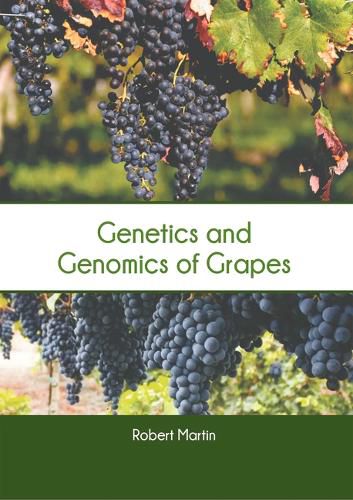Readings Newsletter
Become a Readings Member to make your shopping experience even easier.
Sign in or sign up for free!
You’re not far away from qualifying for FREE standard shipping within Australia
You’ve qualified for FREE standard shipping within Australia
The cart is loading…






The genetics and genomics of grapes are important aspects of viticulture. Grapes (Vitis vinifera) possess a complex genome, approximately 30,000 genes, coding for traits such as disease resistance, fruit quality, and environmental adaptability. Advances in genomics have enabled marker-assisted breeding, accelerating the development of new grapevine cultivars with desired characteristics. Additionally, genomics aids in the identification of genetic variations and evolutionary relationships among grape species. Understanding the grape genome also helps in tackling viticultural challenges, such as susceptibility to pests and climate change impacts. Genomic tools like CRISPR and transcriptome analysis are further enhancing our ability to fine-tune grapevine traits, ensuring better yield, quality, and sustainability in grape production. These advancements are pivotal for both table grapes and wine production, contributing significantly to the global agricultural and economic landscape. The various studies that are constantly contributing towards advancing technologies and evolution of this field are examined in detail. Also included in this book is a detailed explanation of the various concepts and processes of viticulture. This book on viticulture is a collective contribution of a renowned group of international experts.
$9.00 standard shipping within Australia
FREE standard shipping within Australia for orders over $100.00
Express & International shipping calculated at checkout
The genetics and genomics of grapes are important aspects of viticulture. Grapes (Vitis vinifera) possess a complex genome, approximately 30,000 genes, coding for traits such as disease resistance, fruit quality, and environmental adaptability. Advances in genomics have enabled marker-assisted breeding, accelerating the development of new grapevine cultivars with desired characteristics. Additionally, genomics aids in the identification of genetic variations and evolutionary relationships among grape species. Understanding the grape genome also helps in tackling viticultural challenges, such as susceptibility to pests and climate change impacts. Genomic tools like CRISPR and transcriptome analysis are further enhancing our ability to fine-tune grapevine traits, ensuring better yield, quality, and sustainability in grape production. These advancements are pivotal for both table grapes and wine production, contributing significantly to the global agricultural and economic landscape. The various studies that are constantly contributing towards advancing technologies and evolution of this field are examined in detail. Also included in this book is a detailed explanation of the various concepts and processes of viticulture. This book on viticulture is a collective contribution of a renowned group of international experts.